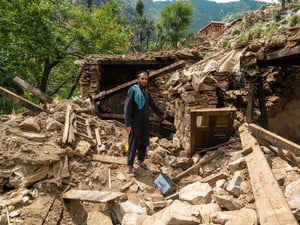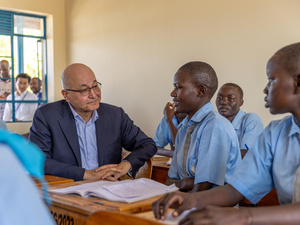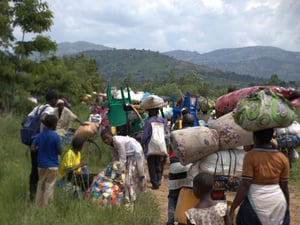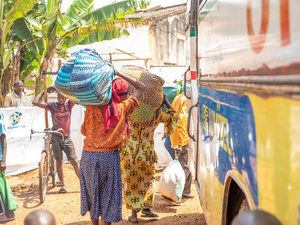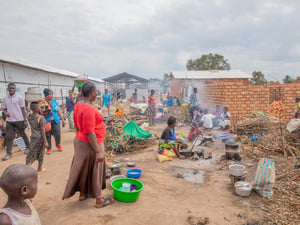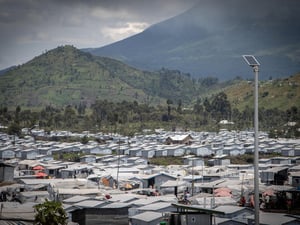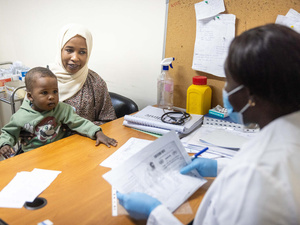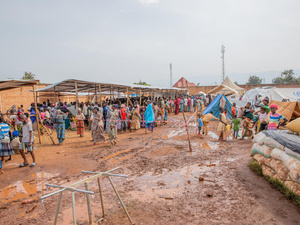Tanzania begins granting citizenship to over 162,000 former Burundian refugees, ending more than 40 years of exile
Tanzania begins granting citizenship to over 162,000 former Burundian refugees, ending more than 40 years of exile
UNHCR welcomes the decision by the Government of Tanzania to grant citizenship to 162,156 former Burundian refugees, who had fled their country in 1972. The Government will also start the naturalization process for many of their children benefitting some 200,000 people overall. This is the first time in UNHCR's history that naturalization is offered as a solution to such a large group of refugees in a country of first asylum.
Last Tuesday, President Jakaya Kikwete inaugurated this process by handing out citizenship certificates to 18 former refugees in Tabora region in western Tanzania. In total, some 110 certificates were given out during the first two days of the process.
In December 2007, the Government of Tanzania announced its willingness to offer naturalization as a solution for Burundian refugees who arrived in 1972, in an effort to end this protracted refugee situation and continue to contribute to peace and stability in the region. The Burundian refugees have lived in three settlements in the Tabora and Katavi regions in western Tanzania. By 2007, they had become largely self-reliant and were taxpaying members of society. In addition to subsistence crops, the refugees produced tobacco and coffee for export, contributing to the development of these remote regions.
While 162,156 Burundians were found to be eligible for naturalization, the original condition for them to relocate to different regions in Tanzania became an obstacle. The process was halted in 2010 after only some 750 former refugees received their citizenship certificates.
Halting the process resulted in great uncertainty for the refugees; many stopped investing in agricultural activities or refrained from enrolling their children in secondary education as they were unsure as to whether they could stay in the settlements or not.
At this year's meeting of UNHCR's Executive Committee, the Government of Tanzania announced it had resolved the nearly four-year-long interruption of the implementation of the decision on the naturalization of the 1972 Burundians. It also said that the new citizens would be allowed to remain in the settlements, where they can exercise their rights as Tanzanian citizens, or move to any other part of the country if they wished to do so. It is the first time that naturalization is offered as a solution to such a large group of refugees.
Tanzania previously granted naturalization to some 32,000 Rwandan refugees in 1982 and in February of this year it concluded the naturalization of some 3,000 Somali Bantu refugees (ethnic Wazigua from Tanzania) who had fled Somalia in 1991, after the fall of the Said Barre regime.
Tanzania is also host to approximately 60,000 refugees from the Democratic Republic of the Congo.
For more information on this topic, please contact:
- In Nairobi, Terry Ongaro on mobile +254 735 337 608
- In Dar es Salaam, Stephan Mhando on mobile +255 22 260 2708
- In Geneva, Karin de Gruijl on mobile +41 79 255 9213

